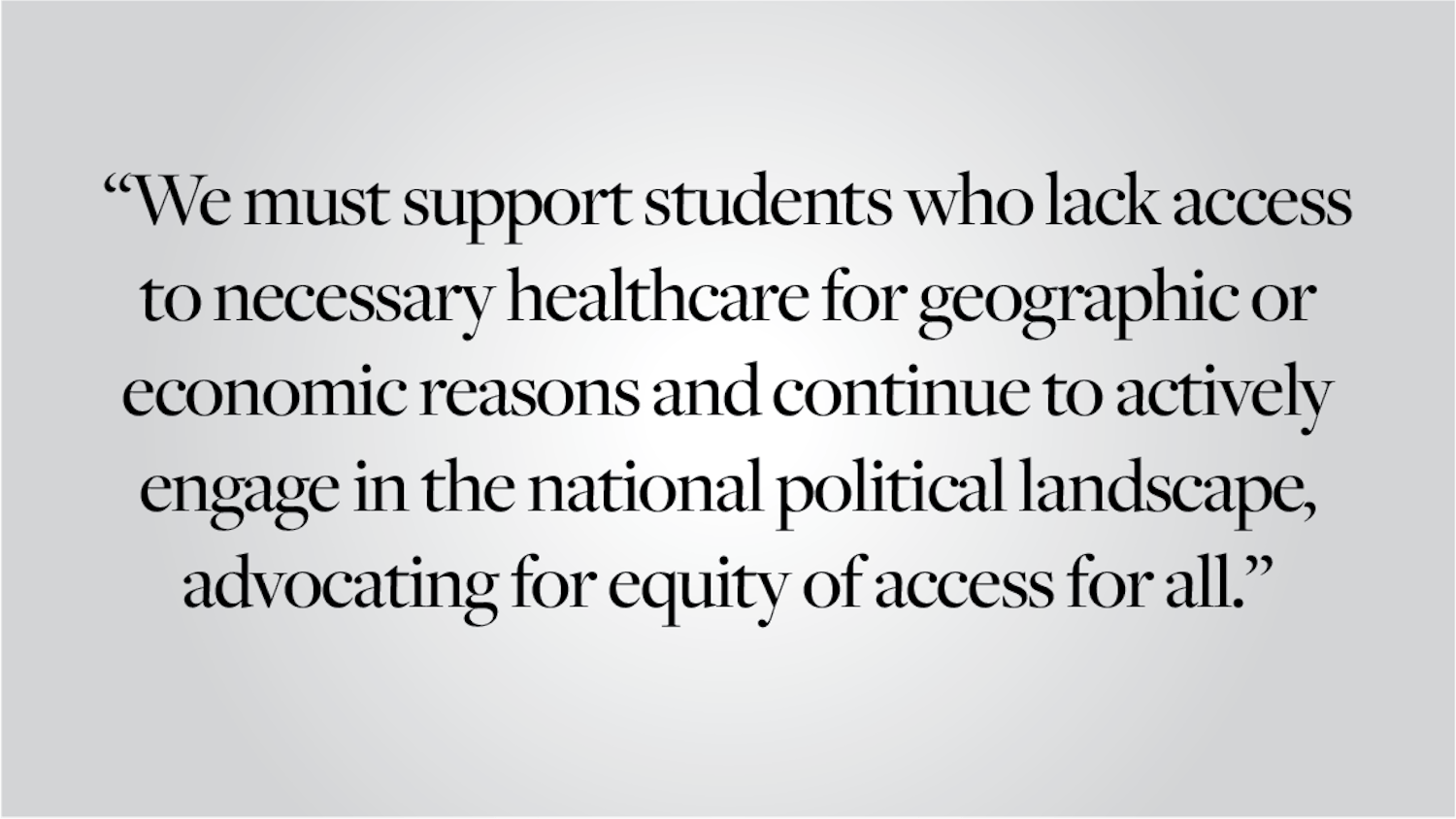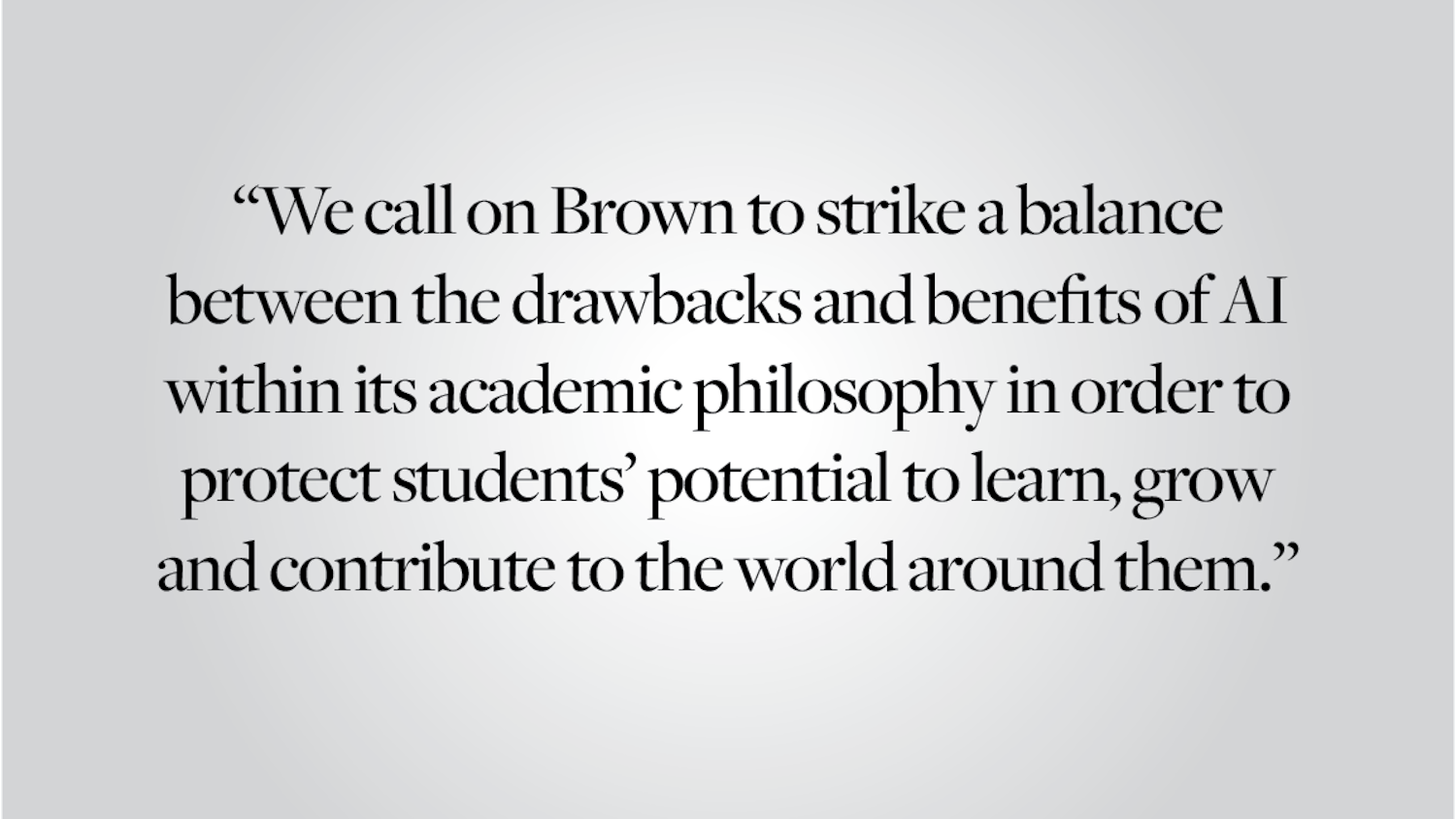Updated March 18, 2015 at 2:00 a.m.
At the beginning of the week the Brown community received an email from Dean of the College Maud Mandel and Vice President for Campus Life and Student Services Margaret Klawunn encouraging every student to fill out the "Enrolled Student Survey," designed by the Consortium on Financing Higher Education. These types of comprehensive data collection are rare at Brown. These results, though not disseminated or publicized widely, are published and available on the Office of Institutional Research website. Administrators and students hoping to create changes at Brown should ground their efforts, when appropriate, in the findings of these surveys to better understand how to improve Brown.
Noting that student “insights are important,” Mandel and Klawunn framed the survey as “an opportunity to share (student) experiences at Brown,” noting that their offices “take student feedback seriously and use it to inform planning and programs.” Questions on the survey touch on various aspects of students’ academic, social and personal lives, asking about the personal relationships students have made with professors, the amount of sleep-deprived nights they have experienced and even whether, if they could start all over again, they would attend Brown.
The considerable scope of questions and the sample size of the survey will help the University collect important insights into the daily lives of students. As one of the very few opportunities for all Brown students to provide feedback that shapes the University, it is every student’s mandate to complete the survey.
Throughout the school year, administrators often solicit feedback from the Undergraduate Council of Students, advisory boards or focus groups. While useful, clearly these sample sizes are small, and it is incredibly difficult for any of these groups to wholly represent the entire student body.
The COFHE —an organization of 31 highly-selective institutions that gather and share information across campuses — “conducts a range of routine, episodic and ad hoc research activities to inform and support institutional decision-making,” according to the website of the Massachusetts Institute of Technology, a member institution.
This information may be compared internally amongst many universities, allowing Brown to understand where it stands relative to peer institutions in terms of academics, athletics and many other aspects. These insights are ultimately utilized to make long-term strategic decisions.
There are very few sources of information that are as valuable to the University as COFHE findings. To incentivize students to fill out the survey, the administration has offered two students who complete it $500 Brown Bookstore gift cards through a lottery process. While this reward is certainly appealing, the sheer benefit of sharing their experiences and feedback should compel all students to fill out the survey. In order to know the problems the University faces, the administration needs to ask us, and students need to respond. By comprehensively assessing the campus climate and sharing these findings, Brown gives students and administrators a shared, empirical set of findings on which to base criticisms and propose improvements.
When students begin to discuss institutional change, most conversations are guided by individual experiences, which change over time. The aggregated data points of these studies could serve as the foundation for new UCS initiatives or provide insights to the Meiklejohn program about various student concerns. While high-level administrators certainly craft policy that is shaped by empirical research about campus conditions, students who hope to change Brown should view the Office of Institutional Research’s published works as a resource to validate their concerns in the context of all Brown students.
Editorials are written by The Herald’s editorial page board: its editors, Alexander Kaplan ’15 and James Rattner ’15, and its members, Natasha Bluth ’15, Manuel Contreras ’16 and Baxter DiFabrizio ’15. Send comments to editorials@browndailyherald.com.
A previous version of this article misstated that the University does not publish student survey results. In fact, student survey results are available on the Office of Institutional Research website. The Herald regrets the error.
ADVERTISEMENT




